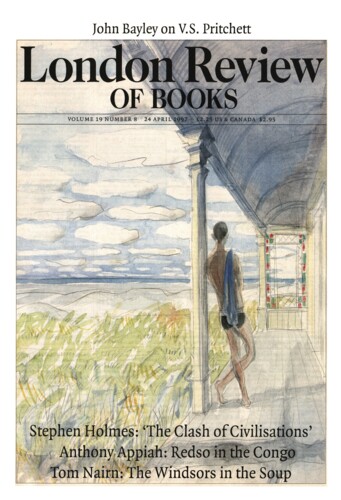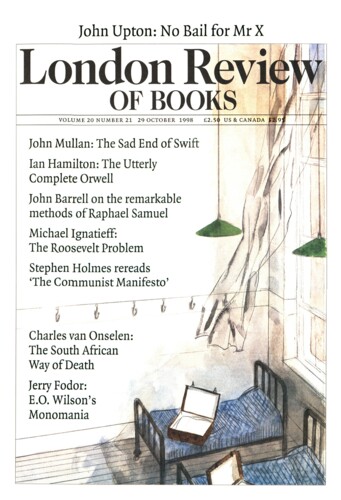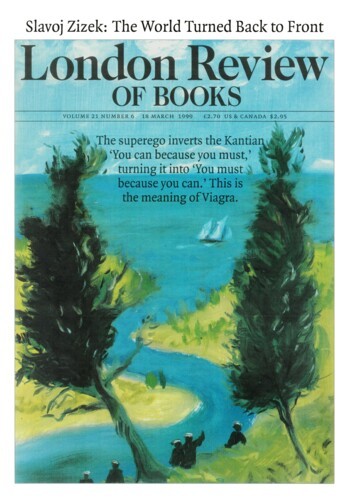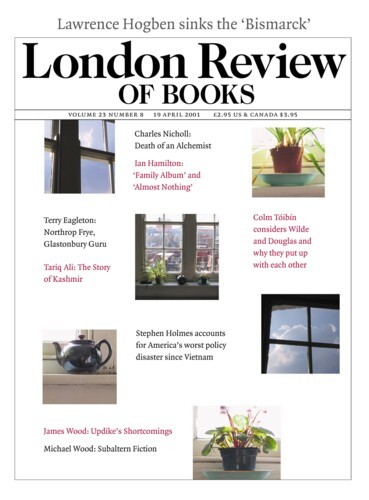In Search of New Enemies
Stephen Holmes, 24 April 1997
Samuel Huntington, the Harvard professor and self-styled defender of Western civilisation, has been a dominant voice in American political science for thirty years. Roughly contemporary, as a Harvard graduate student in security studies, with Henry Kissinger and Zbigniew Brzezinski, Huntington failed to achieve their spectacular level of success in Washington, although he did rise to a second-tier position in the National Security Council under President Jimmy Carter. His intellectual achievements, by way of compensation, have far out-stripped those of his peers. His immensely influential Political Order in Changing Societies (1968), in particular, established his reputation as a leading authority on state-building. While he passes as a conservative of sorts, he is anything but a libertarian, and has been an articulate critic of the tendency of Americans, in particular, to underestimate the contribution of political authority to individual liberty. His 1993 Foreign Affairs article, ‘The Clash of Civilisations?’, was something of a departure. It propelled him into even greater international prominence, not only because it provided a simple picture of the dangers of a post-Cold War world, but because he wrote of ethnic hatred and religious intolerance without the usual liberal discomfort, indeed without appearing to make value-judgments of any sort.





